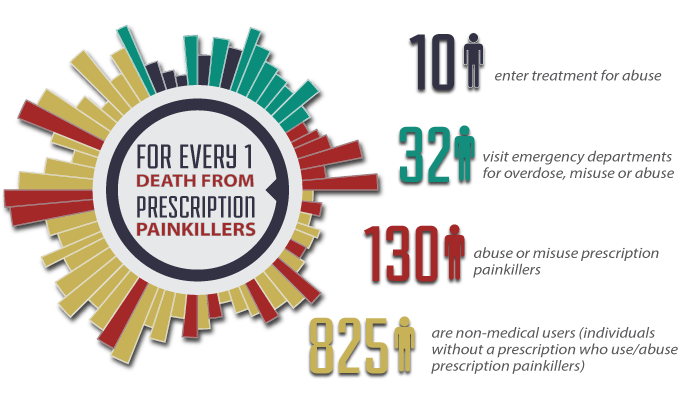
Nardone Limited represents dentists in a variety of dental board matters, including disciplinary issues that may arise as a result of a dentist negligently prescribing narcotics to a patient with a substance abuse problem. Oftentimes dentists are faced with a difficult situation when they have reason to believe that a patient is abusing narcotics and the patient has contacted the dentist’s office for treatment and to obtain narcotics.
It is important for dentists to be able to identify the signs and symptoms of substance abuse, and we would encourage dentists to be aware if a patient has a history of substance abuse. Further, once the dentist has identified that a substance abuse problem exists, the dentist should be prepared to address the problem with the patient in a professional way.
How to Identify Signs of Substance Abuse
The first step to avoid the facilitation of narcotics to a patient with substance abuse issues is for dentists to become familiar with the signs and symptoms of abuse or diversion, as well as drug-seeking behavior. It is the responsibility of the dentist to look for, and be aware of any “red flags,” including:
- Increased caries and caries lesions;
- A decreased response to local anesthesia;
- Contacting a dentist at inopportune times;
- Engaging in or having a history in related criminal activity;
- Receiving reporting drugs from multiple prescribers;
- Family members, friends, law enforcement officers or health care professionals expressing concern related to the patient’s use of illegal or reported drugs;
- A known history of chemical abuse and dependency;
- The request of reported drugs by street name, color, or identifying marks;
- Frequently requesting early refills of reported drugs; and
- Frequently losing prescriptions for reported drugs.
How to Prevent Prescribing Narcotics to an Abuser
If a dentist knows, or has reason to believe, that a patient may be abusing or diverting drugs, the dentist must use sound clinical judgment in determining whether a drug should be prescribed or personally furnished to the patient. To assist in determining whether a drug should be prescribed, the board of pharmacy began implementing rules requiring prescribers to utilize the State Board of Pharmacy’s Ohio Automated Rx Reporting System (“OARRS”) in 2011. OARRS is a tool which provides a complete view of what additional controlled substance medication a patient may be receiving from other prescribers or pharmacies. This gives dentists critical information regarding a patient’s controlled substance prescription history, which enables dentists to identify high-risk patients who would benefit from early interventions. When referencing OARRS, the report of the patient should cover a time period of at least one year.
If a dentist has decided not to prescribe the reported drug to the patient suspected of substance abuse, the dentist must make documentation in the patient’s record that a patient prescription history report was received and assessed. This documentation should also indicate the reason for not prescribing the drug to the patient.
How to Address Substance Abuse with a Patient
In addition to identifying signs of substance abuse and knowing when to access an OAARS report, dentists should also be prepared to discuss the subject with the patient suspected of abusing drugs. It is of little surprise that a drug seeking patient, who is refused a prescription, may be offended or insulted by the allegations of substance abuse.
For this reason, it is helpful if the dentist shifts the responsibility on himself, rather than pointing a finger at the patient. Dentists can do this by making the patient aware that the licensing board requires dentists to check into patient records upon suspicion of drug abuse, and if the report contains red flags, then the dentist has a responsibility to refuse prescribing narcotics to the patient. The dentist should then inform the patient as to why they are refusing to prescribe the requested medication.
Further, the dentist should indicate to the patient that, as a professional, they are subject to sanctions and discipline from the dental board, if they assist in the patient’s substance abuse. Once a dentist identifies a patient with a substance abuse problem, they are not required to notify outside parties of the patient’s drug abuse, due to confidentiality concerns. We do, however, strongly encourage dentists who are confronted with this circumstance to obtain guidance from their legal counsel before taking any action, with or against the patient, or before sharing confidential information with any third parties.
Graphic courtesy of www.delrayrecoverycenter.com. Click here to view in a larger size.
 Vince Nardone Discusses Employment Contracts with Ohio State Dental Students
Vince Nardone Discusses Employment Contracts with Ohio State Dental Students  Navigating the 2024 Landscape: Strategies and Considerations for Dental Support Organizations (DSOs)
Navigating the 2024 Landscape: Strategies and Considerations for Dental Support Organizations (DSOs)  Sellers of Dental Practices to DSOs need to have a Buyer’s Mentality Requiring Selectivity and a Well-Thought-Out, Decision-Making Process
Sellers of Dental Practices to DSOs need to have a Buyer’s Mentality Requiring Selectivity and a Well-Thought-Out, Decision-Making Process  Increasing Profitability by Minimizing Disruptions within Your Dental Practice
Increasing Profitability by Minimizing Disruptions within Your Dental Practice  As a Dentist, What Are My Obligations Related to Out-of-State Patients and Potential Prescription Drug Abuse?
As a Dentist, What Are My Obligations Related to Out-of-State Patients and Potential Prescription Drug Abuse?